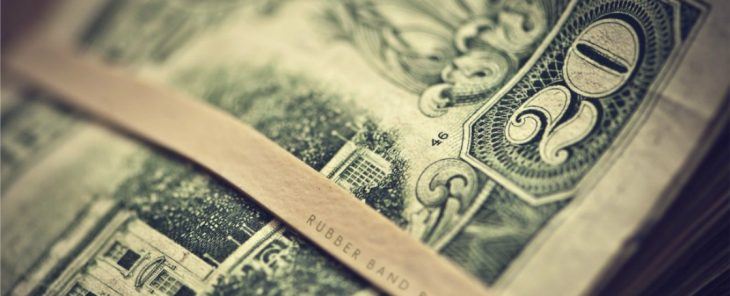Northwest Arkansas sales tax revenue stalls in July
by July 24, 2018 1:54 pm 470 views

Sales tax revenue collections for the region stalled in July with total revenue reported by the four largest cities rising 0.24% to $5.996 million, from the same month a year ago. July’s results did an about-face from the 10.66% gains reported in June and 9.47% growth in May.
July revenue relates to services and sales paid for by consumers in May. Each city collects 2% local tax on sales and services. Half of this tax goes to reduce debt and the remaining 1% is funneled into the city’s operating budget. This report reflects the latter 1%.
July results were mixed among the four cities with Rogers showing the biggest overall gain of 7.56%. Rogers reported revenue totaling $1.667 million for the month. It was the best July on record for the city and the second highest revenue reported this year.
Rogers has been off to a sluggish start this year with flat or negative growth for the first four months. Then in May the city began to see returns of 7.64%, and rising to 10.5% in June. Through the first seven months of this year Rogers has revenue of $11.105 million, up 3.26%. City officials budgeted $17.2 million for this year in sales tax revenue. The city is 65% of the way to its goal through July.
Bentonville has been the leader this year in sales tax revenue growth, but in July the city posted a 9.98% drop in revenue from a year ago. It marks the first time revenue has been down this year after a typical roller coaster ride from month to month during 2017. July revenue totaled $1.085 million and the city remains in solid fiscal shape. Through July, the city reports total revenue of $10.992 million, up 56% from a year ago.
Springdale has been a mixed bag this year with plenty of ups and downs. In July the city’s sales tax revenue dropped 4.13% to $1.348 million. The city did face a fairly tough comparison from a year ago when Sam’s Club opened in May bringing additional revenue into the city. Through July, Springdale has revenue of $8.596 million, up 3.31% year-over-year. Like Bentonville, Springdale officials budgeted conservatively with revenue expectations of $14.718 million for the full year. Through July, Springdale is 58% of the way to its goal.
Fayetteville reported a sales tax gain of 4.15% in July with revenue totaling $1.896 million. Fayetteville has not reported any drops in revenue this year, although in April it showed only a 0.9% uptick from a year ago. Through July, Fayetteville has generated sales tax revenue of $12.841 million, up 4%. City officials budgeted annual sales tax revenue of $21.595 million, about 2% over last year. Through July the city is 59% of its way to the annual goal.
National consumer sentiment in May and June was high as economic growth in the second quarter looked promising. U.S. retail sales have been solid in June rising 6.6% from a year ago. Through the first half of 2018 retail have sales have totaled $2.922 trillion, up 5.5% year-over-year. With retail solid retail sales growth in June, that bodes well for sales tax revenue in the next month or two. The back-to-school season has begun and this year the National Retail Federation expects consumers will dole out $82.8 billion for back-to-school and college.
This year the state of Arkansas has set Saturday Aug. 4 and Sunday Aug. 5 as the tax holiday for back-to-school shopping. The National Retail Federation said many shoppers will already have purchased the majority of their items by then as retailers have actively promoted back-to-school specials since early July. The list for eligible items on tax free holiday in Arkansas include: Clothing and footwear up to $100 per item; Clothing accessories up to $50 per item; School supplies; School art supplies; and School instructional materials. Arkansas does not exempt large ticket items such as computers.
Economists have said tax free holidays associated with back-to-school don’t rob much from sales tax revenue. Last year the region experienced a 9.87% increase in October sales tax revenue, despite the back-to-school tax holiday given in August 2017. The year before the gains in October were up 10.8% from October 2015.
A report from the Federal Reserve found tax holidays mean consumers simply shift the timing of purchases and some retailers raise prices during the holiday, reducing consumer savings. This year 17 states plan to host a tax-free holiday, up from 16 states last year. Advocates for tax free holidays say they promote economic growth through increased spending and improve retail sales. Those against the tax-free holiday say they do little to help low-income consumers who may not have the means available to spend on the appointed days.
